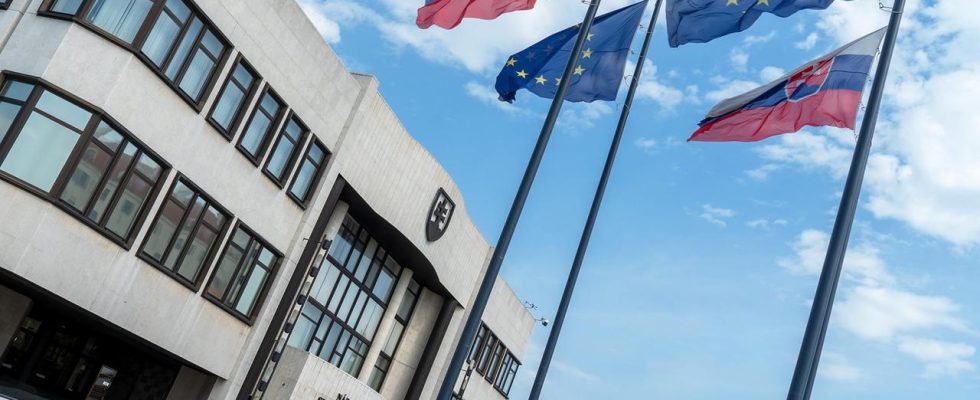Parliament will be elected in Slovakia in September. Several members of the security apparatus have been arrested in recent weeks. The opposition sees it as a coup, the government as a fight against corruption.
These are serious allegations that Robert Fico voices every day in hastily called press conferences. The former head of government of Slovakia had to resign five years ago after the murder of journalist Jan Kuciak. The left-wing populist stood for a system full of corruption. But after the elections at the end of September, he could lead the next government.
“They know very well that they cannot beat us democratically,” said Fico. “That’s why we’re dealing with a classic police coup.” The aim is to bring the most important security organs under their control. “This coup has the full support of the President and her Acting Prime Minister.”
In several raids, the Slovakian criminal police first arrested ex-police chief and Fico confidante Tibor Gaspar, later the current head of the domestic secret service, his predecessor, the head of the national security agency, as well as former police officers and business people. Peter Pellegrini, Fico’s successor as head of government and possible new coalition partner, believes the functioning of the state is at risk: “There has never been a situation like this in Slovakia. And nothing like this happens anywhere in our neighboring countries, and certainly not in western democracies from us.”
Serious allegations against the accused
However, the allegations against the accused also weigh heavily: They are accused of abuse of office and obstruction of justice as well as the formation of a criminal organization. According to the current chief of police, Stefan Hamran, the latest wave of arrests has nothing to do with the early parliamentary elections in just under six weeks. The investigation has been going on for two years. “In this country there was stolen, in this country there was corruption, right up to the highest circles,” said Hamran.
Since the end of the Fico government, the Slovakian media have been talking about an opaque “police war.” Confidants of the longtime prime minister were convicted and other proceedings were discontinued. Fico could never be proven anything. The corruption investigators themselves have been accused by other police units of tampering with procedures and testimonies.
The conservative coalition that followed quickly gambled away the trust it had in fighting corruption and dismantled itself. Parliament President Boris Kollar was also involved in this. “You can’t replace an old injustice with a new one,” says Kollar. “Unfortunately, after the failure of our mandate, we see that the previous group in the police force has just been replaced by another using the same illegal means.”
Confidence in the rule of law is falling
President Zuzana Caputova rejects allegations like these. After a meeting of the Security Council, the liberal politician declared: “All state organs are functional. There is no police putsch in Slovakia.”
Caputova suspended the head of domestic intelligence, Michal Alac. Interim Prime Minister Ludovit Odor is to propose his dismissal today. “Slovakia is still a constitutional state,” said Odor. “The next few hours and days will show whether the public prosecutor’s office and the courts will also agree with the accusations made by the police. Not politicians, but they will decide whether there have been violations of the law or not.”
One thing is already certain: Confidence in democracy and the rule of law in Slovakia has fallen further. Society is more polarized than ever, warns political scientist Jozef Lenc. For observers like him, it is completely open which political camp will benefit in the end. “Many citizens will definitely be calling for a strong personality who will put things in order here,” Lenc estimates. “And that is the great danger for democracy in Slovakia.”

